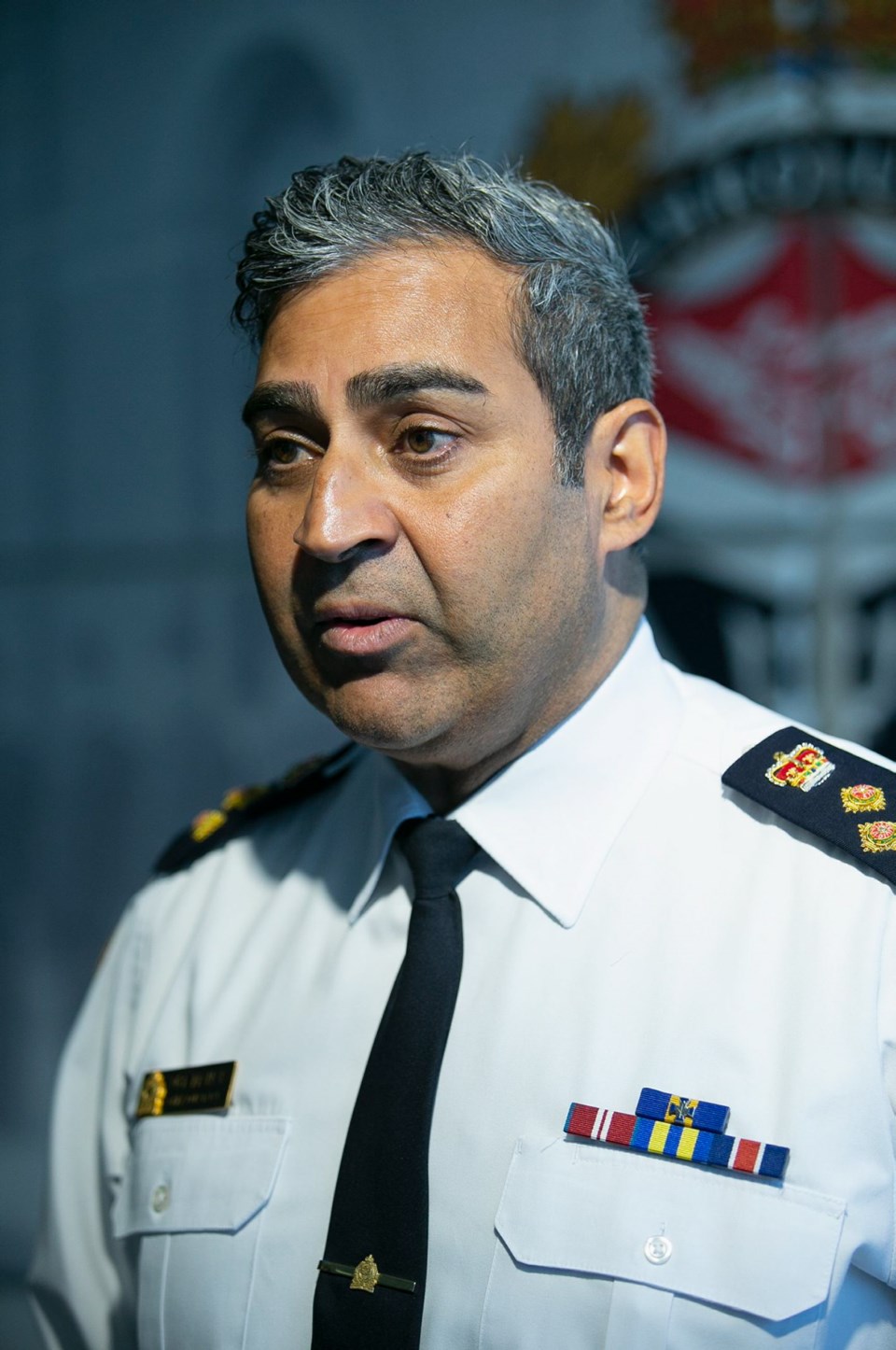The Victoria Police Department is consistently failing to meet its own expected response times to calls for help — including those considered urgent and life-threatening, a new report shows.
Police Chief Del Manak will provide city council with a third-quarter update Thursday that highlights in red the department’s missed targets. “There’s a lot of red,” he acknowledged Monday. “There’s too much red on there for my liking.”
The department expects officers to respond to “priority one” or life-threatening calls in seven minutes or less, 95 per cent of the time. For priority two and three calls, it wants officers on the scene in 12 minutes and 40 minutes respectively, 90 per cent of the time.
Manak said the department has missed those targets in all three quarters this year in both Victoria and Esquimalt.
“So that, to me, shows that consistently we are not meeting the expectations for our police response that we have set,” he said. “The question is: Why are we missing them and what can we do?”
Manak argues that his department simply doesn’t have enough officers to deal with the volume and complexity of calls. He noted that in the past two days alone, the department has dealt with two serious incidents that tied up officers for extended periods.
In one, a man barricaded himself in a room at a downtown synagogue for four hours Monday, forcing the evacuation of a daycare and requiring extended negotiations before the man was apprehended under the Mental Health Act.
In another, police responded to a report of a domestic assault and were involved in a five-hour standoff with a man at a Victoria apartment building Sunday before he was arrested.
Manak said both incidents occupied officers for significant amounts of time in order to safely resolve the situations and protect the public, the officers and each of the suspects.
“We can’t release officers because that scene has to be contained and we have to do things right, because there’s a higher propensity for things to go wrong or there’s a higher risk to public safety,” he said. “So what that means then is any other call that comes into 911 now gets put on hold or is not going to get the immediate attention.”
Manak says more officers would alleviate those pressures. His efforts to hire additional staff, however, have been consistently thwarted by Victoria and Esquimalt councils.
This year, for the second year in a row, the Victoria police board is asking the province’s police services division to overrule local politicians and authorize the hiring of additional officers.
The board won a similar case in February when the acting director of police services ordered the two councils to hire the six officers that were turned down in 2018.
Victoria council has repeatedly called for a regional police force, arguing that Victoria and Esquimalt taxpayers unfairly bear the entire burden of policing the region’s downtown core.
Coun. Ben Isitt has called it a “funding quagmire” and urged the province to intervene.
“Each year’s budgeting process, we essentially find ourselves in a fiscal crisis, where council is extremely reluctant or even unwilling to grant the requests that VicPD says is necessary for public safety,” he said during police budget discussions last month.
“So I think rather than have this as an eternal discussion between the council and the municipality and the police and the police board, bring the province into the conversation since, ultimately, policing is a provincial responsibility.”
In the meantime, Manak said the department is looking for ways to make more efficient use of its existing resources.
“Does a police officer have to attend every call where somebody calls 911?” he said. “Could we do it over online reporting. Could we do it over telephone reporting?”
The department is also looking to schedule more officers during peak call periods and hire unarmed and less expensive special municipal constables to ease the workload on regular officers.
The department has already eliminated front-desk-service hours on evenings and weekends, cut school liaison officers and disbanded a nine-member crime reduction unit so officers can better answer 911 calls.
Manak said he knows the public wants more service, not less, but he has to work within the budget he’s given to keep people safe.
“If I’m left to make a decision and somebody’s calling 911 and their personal safety’s in jeopardy, I have to have the public’s confidence and the public have to know that the call is going to get answered and the police are going to respond in time to protect lives or to minimize injuries.”



